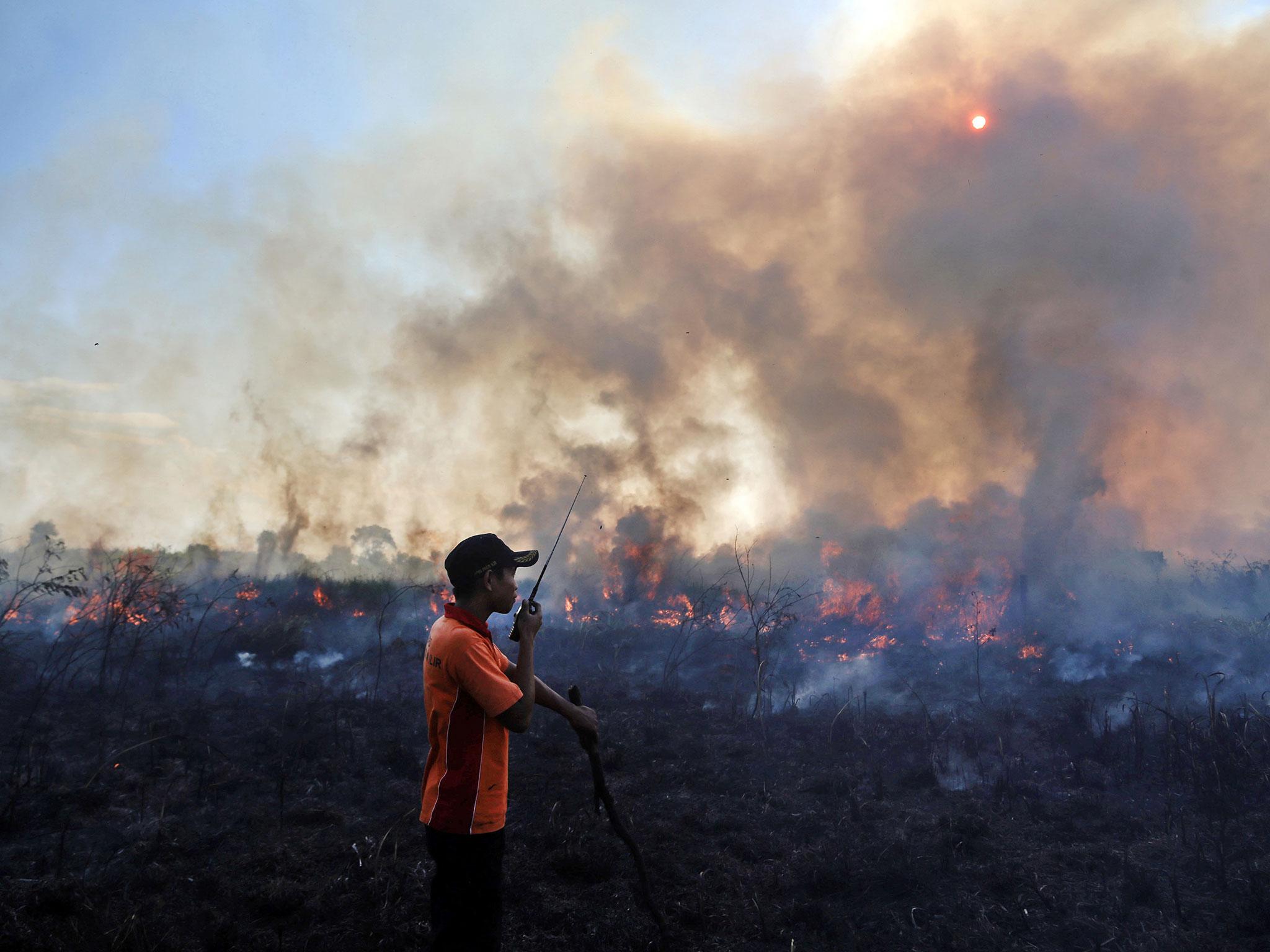Palm oil company with links to Tory donors accused of failing to prevent ‘thousands of acres’ of rainforest being destroyed
Former Prime Minister David Cameron once worked for the firm’s parent company, Jardine Matheson – largely controlled by the Scottish Keswick family which includes leading Conservative party donors

A palm oil company with links to Tory party donors and friends of David Cameron has been accused of failing to prevent massive fires devastating the rainforest.
The firm, called Astra Agro Lestari, is a subsidiary of multi-billion dollar conglomerate Jardine Matheson, which owns major retail outlets, a string of luxury hotels and construction firms – as well as selling second-hand cars – mostly in Asia.
Jardines is largely controlled by the well-connected Keswick family, descendants of its founders as an opium trader in 19th century China.
David Cameron’s father Ian was a friend of the Keswicks and worked as a stockbroker to the family. In the 1980s, the future Prime Minister briefly worked at the company’s office in Hong Kong.
In 2012, Ben Keswick, Jardine Matheson’s current managing director, was among a number of British business delegates who flew in the then Prime Minister’s plane on a business trip to Asia. Sir Henry Keswick and his brother Simon Keswick have donated substantial amounts to the Conservative Party.
In May last year, Astra stunned conservationists when it told The Independent it would sign up to a strict “no deforestation” policy ahead of protests outside the Mandarin Oriental luxury hotels, an international chain owned by Jardines.
However, a report commissioned by the Rainforest Foundation Norway and other conservation groups has now found there were a total of 677 fire “hotspots” on Astra’s land concessions in Indonesia from July to October last year.
A recent study suggested air pollution from forest fires in 2015 in the country caused the premature deaths of more than 100,000 people.
The loss of rainforest land is also one of the major reasons why animals such as orangutans are now critically endangered.
Anja Lillegraven, of Rainforest Foundation Norway, said: “Astra urgently needs to take steps to prevent a repeat of last year’s haze catastrophe.
“Palm oil plantations on peat are extremely fire-prone, and we want to see Astra making a serious effort to restore degraded peatlands and forests within its concessions.”
The report, by researchers at AidEnvironment, stressed there was no evidence that Astra was deliberately burning rainforest to clear the land for palm oil plantations.
But it added Astra’s lack of fire control had contributed to the blanket of smoke that covered much of Indonesia last year and “resulted in enormous environmental and economic losses for the country”.
“Thousands of hectares burnt inside Astra’s concessions, including valuable forests and oil palm planting,” the report said.
In recent years conservationists have been successful in persuading many major international food companies to stop cutting down pristine forests to plant food crops.
This is partly because of the loss of endangered animals and a valuable natural environment, but also because there is so much degraded land available that it is not actually necessary.
Animals in decline
Show all 8This culminated in the historic signing of the New York Declaration on Forests in September 2014, which was hailed as the end of humanity’s “war on trees”, which essentially dates back thousands of years to the invention of agriculture.
Astra, also known as AAL, adopted a moratorium on converting forest into plantation land in June last year, when it said: “AAL will ensure that there will be no clearance of any natural forest either by the company or any of its contractors across all its operations in Indonesia.”
Under Indonesian law, companies are responsible for preventing and extinguishing fires on their concessions.
Astra was sent a copy of the report ahead of publication by the researchers and responded by saying: “AAL has always had a Zero Fire Policy. None of the fires occurring inside of AAL estates during July to October 2015 was carried out by AAL, or for the purposes of AAL’s plantation development.
“Fires occurring were the result of sparks from areas surrounding our concessions. We have reported these fire incidents to the Indonesian government.
“Since October 2015, AAL has made further improvements on its fire prevention and mitigation procedure in compliance with government regulations.”
In a statement, Jardine Matheson said said Astra "takes environmental and social stewardship very seriously" and had published a sustainability policythat "reflects the company’s ongoing commitment to cultivate oil palms responsibly".
It said it had appointed technical consultants to develop a "comprehensive implementation plan that is ongoing and making progress including maintaining a full moratorium on all forest clearance".
"AAL takes the findings of the Rainforest Foundation Norway report very seriously, and sees it as providing information that can help improve its sustainability work further," it added.
Subscribe to Independent Premium to bookmark this article
Want to bookmark your favourite articles and stories to read or reference later? Start your Independent Premium subscription today.

Join our commenting forum
Join thought-provoking conversations, follow other Independent readers and see their replies